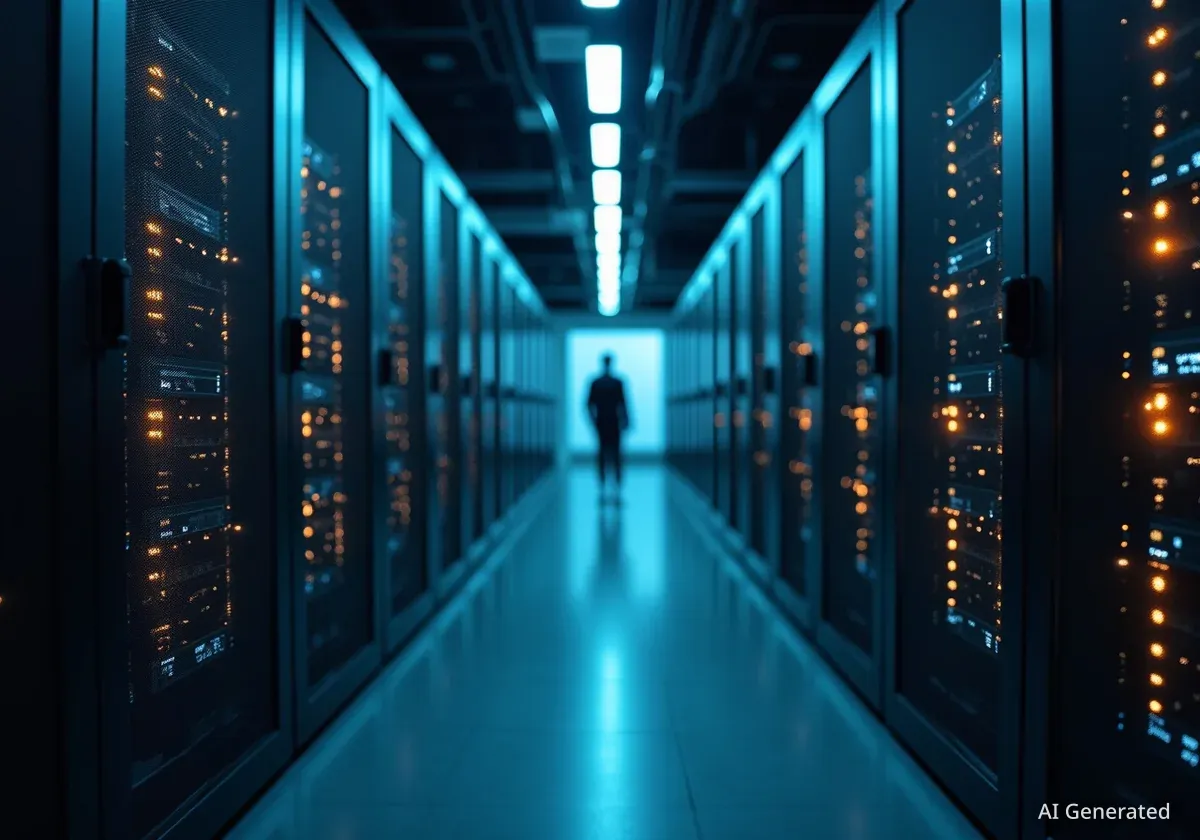Microsoft Chairman and CEO Satya Nadella has announced a significant leadership restructuring designed to sharpen the company's focus on artificial intelligence. The move involves delegating responsibilities for the commercial business to veteran executive Judson Althoff, allowing Nadella and other engineering leaders to concentrate on core AI development and infrastructure.
Key Takeaways
- Satya Nadella is handing off commercial business duties to increase his focus on AI innovation.
- Judson Althoff, a nine-year veteran of Microsoft's sales organization, is promoted to CEO of the company's commercial business.
- The reorganization places marketing and operations teams under Althoff's new commercial division.
- Nadella will now dedicate his efforts to datacenter expansion, systems architecture, AI science, and product innovation.
Strategic Leadership Reorganization
In a communication shared with employees, Satya Nadella detailed the changes, emphasizing the need for a dedicated focus on the rapidly advancing field of artificial intelligence. The primary change is the promotion of Judson Althoff to an expanded role as CEO of Microsoft's commercial business.
Althoff has been a key figure at the company, having led its global sales organization for the past nine years. His new position consolidates several major divisions under his leadership, creating a more unified commercial front for the technology giant.
Background on Judson Althoff
Before this promotion, Judson Althoff served as Microsoft's executive vice president and chief commercial officer. His nine-year tenure in that role saw him oversee the global sales strategy and customer relationships, making him a central figure in the company's commercial success, particularly with its cloud services.
A New Commercial Structure
The restructuring extends beyond Althoff's new title. Takeshi Numoto and his marketing team will now be part of the new commercial organization. Numoto will report to Althoff as chief marketing officer, though he will maintain a reporting line to Nadella for specific parts of the business.
Additionally, the company's operations organization will also report to Althoff. A new commercial leadership team, led by Althoff, will be established to oversee product strategy, go-to-market readiness, and sales execution. According to Nadella, this team will ensure "the rigor and executional excellence our customers expect."
Nadella's Renewed Focus on Core Technology
This reorganization is designed to free up Nadella and Microsoft's top engineering talent to concentrate on what he described as the company's "highest ambition technical work." This strategic shift underscores the critical importance of AI to Microsoft's future.
The specific areas Nadella will now focus on include:
- Datacenter Buildout: Expanding the global infrastructure necessary to power advanced AI models.
- Systems Architecture: Designing the next generation of hardware and software systems for AI.
- AI Science: Pushing the boundaries of fundamental artificial intelligence research.
- Product Innovation: Integrating cutting-edge AI capabilities across Microsoft's entire product suite.
"Each one of us needs to be at our very best in terms of rapidly learning new skills, adopting new ways to work, and staying close to the metal to drive innovation across the entire stack," Nadella stated in his memo. "This isn’t just evolution, it’s reinvention, for each of us professionally and for Microsoft."
Context of Microsoft's AI Investments
The leadership changes align with Microsoft's recent large-scale investments in artificial intelligence and cloud computing. The company has been positioning itself to lead the AI race, committing substantial capital to infrastructure and research.
Major UK Investment
In a recent move highlighting its global AI ambitions, Microsoft announced a $30 billion investment in the United Kingdom through 2028. This commitment, one of the company's largest regional investments to date, is aimed at expanding its AI and cloud infrastructure in the country.
The company's financial performance reflects the growing demand for these services. During a July 30 earnings call, Microsoft reported a record fiscal year, attributing the success to strong demand for its cloud and AI offerings. The results showed that enterprises are accelerating their migration to the cloud, driven in part by the increasing use of AI across Microsoft's cloud stack.
This internal restructuring is a clear signal that Microsoft is not just participating in the AI revolution but is organizing its entire leadership structure to lead it. By placing a seasoned executive like Althoff in charge of the commercial engine, Nadella is ensuring the business continues to run smoothly while he focuses on the technological foundations of the company's next chapter.





